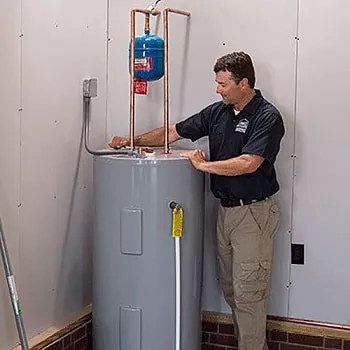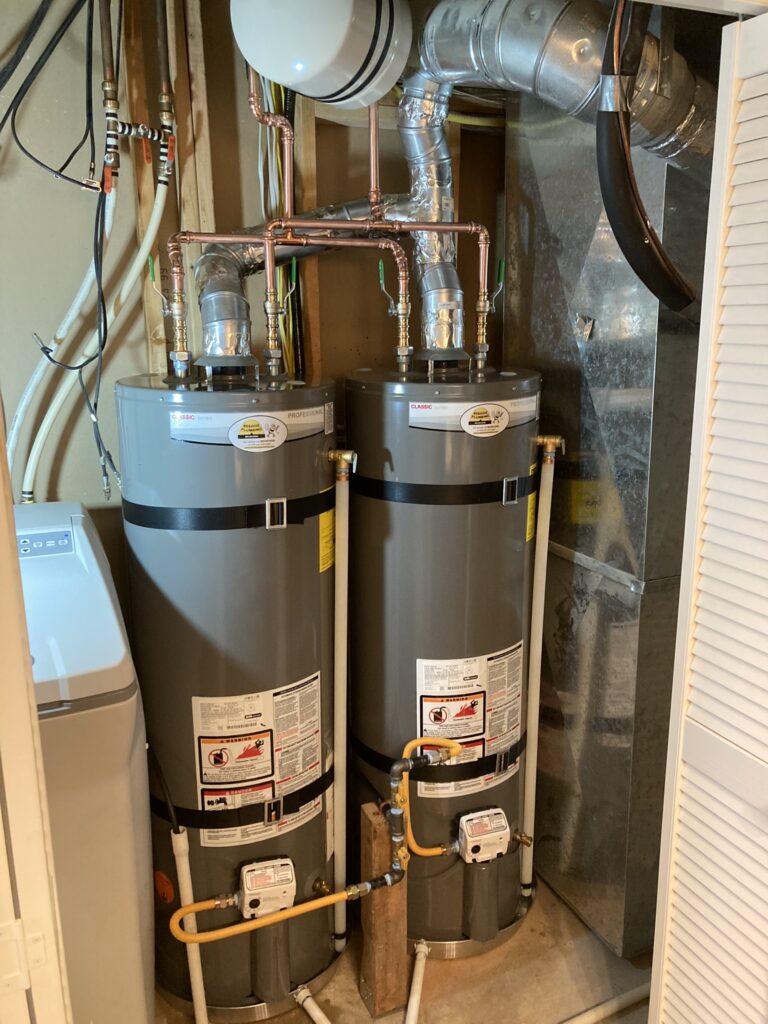Top-Rated Plumber Denton Offering Quality Plumbing Services You Can Trust
Top-Rated Plumber Denton Offering Quality Plumbing Services You Can Trust
Blog Article
Full Guide to Water Heating UnitInstallment and Substitute
Comprehending the complexities of water heater installment and substitute is critical for property owners seeking to guarantee effectiveness and reliability in their warm water supply. From choosing the ideal type and dimension to performing a seamless installment procedure, several variables have to be thought about to stay clear of usual challenges. This guide will certainly offer you with the necessary steps and insights to browse the intricacies of this home renovation task, while additionally stressing essential upkeep methods that can lengthen the life of your system. As you explore these facets, you might locate on your own reassessing your current setup and determining locations for renovation.
Kinds of Water Heating Systems
When taking into consideration hot water heater setup and replacement, it is vital to understand the numerous sorts of water heating units available in the market. One of the most common types consist of tank water heaters, tankless water heating systems, warm pump hot water heater, and solar water heaters.
Tank hot water heater are standard systems that keep a particular volume of warm water, making them easily available when needed. They are generally less costly upfront but might incur greater power expenses over time because of warm loss. In comparison, tankless hot water heater provide warm water as needed, removing the need for storage space. They are power effective and can conserve space, however their first expenses are generally greater.
Heatpump hot water heater make use of electrical power to move warmth from the air or ground to heat water, providing considerable energy financial savings but requiring more area and details installation conditions. Solar water heating systems harness solar power to warmth water, giving an eco-friendly option with potential long-term cost savings, although they frequently need a backup system for gloomy days.
Recognizing these alternatives ensures informed choices regarding installment and substitute, satisfying specific needs and preferences.
Choosing the Right Dimension
Picking the appropriate dimension for a water heater is essential to ensure optimum performance and effectiveness. An unit that is also tiny will certainly struggle to meet family demands, resulting in inconsistent warm water accessibility and enhanced power usage. Conversely, a large water heater can cause unnecessary power waste and higher energy bills.
To determine the ideal size, take into consideration the home's optimal hot water use. This can be calculated based on the variety of residents and their regular warm water demands. For example, a family members of four may call for a water heater with a capability of 50 to 80 gallons, depending on the usage patterns, such as synchronised showers and washing.
Additionally, examine the recuperation rate, which determines just how quickly a heating unit can replenish warm water after it has actually been utilized. For tankless versions, concentrate on the circulation rate, measured in gallons per min (GPM), to ensure it fulfills the household's synchronised demand.

Setup Process Introduction

Following, the old system should be separated and eliminated, taking care to comply with neighborhood codes and guidelines relating to disposal. Once the old system is out, the new hot water heater can be placed in position. This action includes attaching the water system lines, making sure that all fittings are leak-free and protected.
After developing water connections, it's necessary to attach the power supply, whether electrical or gas, following the maker's instructions thoroughly. As soon as all connections are made, the system must be full of water, and the power navigate to this site can be transformed back on. It's essential to check for leakages and ensure the water heating unit is working properly prior to completing the setup process.
Typical Installation Errors

An additional frequent error is disregarding to comply with neighborhood codes and regulations. Stopping working to stick to these requirements can not only lead to safety and security hazards however might additionally result in expensive penalties or the demand for pricey reinstallation.
Incorrect plumbing connections are likewise a widespread mistake. Failing to secure connections or utilizing the wrong kind of installations can bring about leakages and water damages. Furthermore, ignoring the value of a proper drain pan can lead to considerable water damage if leaks do happen. Inadequate insulation of pipes can lead to heat loss, decreasing efficiency. By avoiding these usual installment blunders, homeowners can ensure their hot water heater runs safely and efficiently, making best use of performance and longevity.
Upkeep Tips for Long Life
Appropriate maintenance of a water heating unit is vital for its durability and optimum efficiency. Normal examinations and servicing can stop pricey repair services and expand the home appliance's lifespan. Begin by examining the temperature setup; it ought to commonly be set in between 120 ° F and 140 ° F for ideal power effectiveness and safety and security.
Every six months, purge the tank to get rid of sediment accumulation, which can harm heating performance and cause corrosion. To do this, switch off the heater, link a hose to the drain shutoff, and allow the water run till it is clear.
When they are rusted,Anode poles should be examined each year and changed. These rods assist stop container corrosion by drawing in harsh elements in the use this link water.
Additionally, inspect the stress relief shutoff frequently to guarantee it is operating appropriately. This valve is important for stopping excessive pressure buildup within the storage tank.
Finally, take into consideration scheduling an expert upkeep check every couple of years for detailed assessments and maintenance. By sticking to these maintenance tips, home owners can considerably improve the effectiveness, security, and lifespan of their hot water heater, ensuring reputable hot water for several years ahead.
Verdict
Finally, appropriate setup and maintenance of hot water heater are crucial for ensuring efficiency and long life (pipe repair). Selecting the ideal kind and size, adhering to installation standards, and preventing common mistakes dramatically add to optimum efficiency. Regular upkeep checks and specialist servicing help suffer functionality and protect against pricey repair services. By why not try these out understanding these essential facets, house owners can achieve a dependable warm water supply while decreasing prospective issues associated with hot water heater procedure.
Comprehending the details of water heating unit installment and replacement is important for home owners seeking to make sure efficiency and dependability in their warm water supply.Container water heaters are standard systems that store a particular quantity of warm water, making them readily offered when required. In comparison, tankless water heaters supply warm water on demand, getting rid of the demand for storage space. Selecting a water heating unit that is either too little or also large can lead to ineffectiveness, resulting in inadequate hot water supply or excessive power consumption.
By comprehending these important facets, property owners can attain a trusted hot water supply while lessening possible problems associated to water heater procedure. plumber Denton.
Report this page